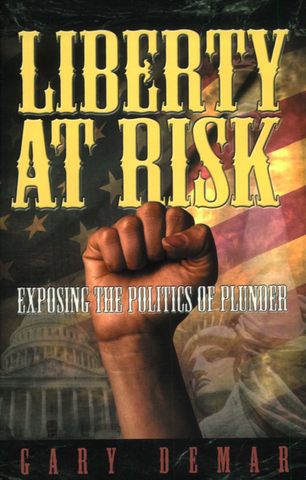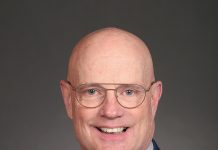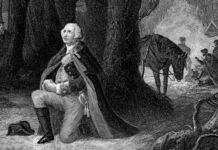Michael Tomasky, writing for the New Republic (January 10, 2022), called for bold political action: “In 2022, Democrats Must Put the GOP’s Threats to Democracy on the Ballot.” “Threats to Democracy”? Does he mean stacking the Supreme Court by adding more Leftist Justices because he does not like the conservatives on the court and allowing non-Citizens to vote? Does he mean canceling and censoring contrary opinions? Does he mean joining with the media to push a singular Leftist agenda? Anytime Democrats lose politically, they moan and groan about how Democracy is being subverted. Do they have any understanding of what they are talking about?
Thomas Lanza, an insurance agent from Harrison, NY, in a short article that appeared in the October 30, 1991, issue of USA Today, advocated that we should abolish Congress and bring on true democracy by giving every eligible voter an equal say on every issue. This would mean doing away with a decentralized republican form of government and allowing those with the most votes to get their way on every proposed piece of legislation. The symbol of defiance in the 1960s was a raised clenched fist with the rallying cry of “power to the people.” Burn the image into your mind when you hear about the ideals of unfettered democracy.
The Political God
Democracy has become a political god—vox populi, vox dei: “The voice of the people is the voice of god.” Francis A. Schaeffer described democracy as “the dictatorship of the 51%, with no controls and nothing with which to challenge the majority.”[1] Church historian C. Gregg Singer argued that “Modern political theory has replaced the doctrine of the sovereignty of God with that of the sovereignty of man.”[2] While such an appeal to the people might work in the short run, over time, with humanists controlling our schools and the media, public opinion can shift rapidly.
As bad as Congress and the Supreme Court are, and as free-spending as the Republicans have been under Republican and Democrat presidents, is democracy what we want, especially when Christians as a group do not participate in politics in great numbers, and many who do vote want “goodies” from the government in the name of “Democracy”? If given serious consideration by conjoined liberal special interest groups, democracy would be used to exclude Christians, or at least to any appeal to biblical moral values, from the political process. This is the fear that gripped Christians in Iraq. If the Shi’ites get to vote and make Islam the State religion, churches will be shut down and Christians persecuted.
The Voice of the Founders
Our founders certainly didn’t want a pure democracy even when the majority of those who could vote at the time were Christians. John Winthrop (1588–1649), first governor of Massachusetts Bay Colony, declared direct democracy to be “the meanest and worst of all forms of government.”[3] John Cotton (1584–1652), a seventeenth-century Puritan minister in Massachusetts, wrote in 1636: “Democracy, I do not conceive that ever God did ordain as a fit government either for church or commonwealth. If the people be governors, who shall be governed?”[4] It was a democracy that put Saul in power (1 Sam. 8).
In the Federalist Papers (No. 10), James Madison (1751–1836), fourth president of the United States and recognized as the “father of the Constitution,” wrote that democracies are “spectacles of turbulence and contention.” Pure democracies are “incompatible with personal security or the rights of property…. In general [they] have been as short in their lives as they have been violent in their deaths.”[5] John Adams was equally wary of pure democracy: “If the majority is 51 and the minority 49, … is it certainly the voice of God? If tomorrow one should change to 50 vs. 50, where is the voice of God? If two and the minority should become the majority, is the voice of God changed?”[6] The following is from a letter he wrote in 1814:
“Remember Democracy never lasts long. It soon wastes exhausts and murders itself. There never was a Democracy yet, that did not commit suicide,” he wrote, before continuing, “It is in vain to Say that Democracy is less vain, less proud, less selfish, less ambitious or less avaricious than Aristocracy or Monarchy. It is not true in Fact and no where appears in history. Those Passions are the same in all Men under all forms of Simple Government, and when unchecked, produce the same Effects of Fraud Violence and Cruelty.”
Did these men oppose the democratic process? Winthrop certainly did not. Rulers were chosen “by the general vote of the people” through the raising of hands.[7] Certainly, Madison cannot be accused of rebuffing the democratic process since the Constitution mandates that representatives be elected by popular vote. Maybe it’s because they understood the observational wisdom of this quotation usually attributed to an Alexander Tyler. Though unverified, its sentiments are on the money:
A democracy cannot exist as a pure form of government. It can only exist until the voters discover that they can vote themselves largesse [benefits] from the public treasury. From that moment on, the majority always votes for the candidate promising the most benefits from the public treasury, with the result that democracy always collapses over loose fiscal policy, always followed by a dictatorship.
To temper the abuses of democracy, our founders created a system of checks and balances. These men feared that the whims of the majority cut off from an ethical base would prevail if direct democracy were ever accepted as a legitimate form of civil government. On the other hand, these men knew that only “the people” could keep a civil government in check. There was no divine right of kings (or a divine right of representatives or judges), and there must be no divine right of the people. But if at any time the character of the people changed, their constitutional effort, no matter how noble, would have been nullified. Here is how Supreme Court Justice Joseph Story (1779–1845) explained it:
In ascending to the great principles upon which all society rests, it must be admitted that there are some which are of eternal obligation, and arise from our common dependence upon our Creator. Among these are the duty to do justice, to love mercy, and to walk humbly before God [Micah 6:8].[8]
In his book The Course of American Democratic Thought, Ralph Henry Gabriel describes democracy as a “romantic” idea, a “national faith” that has “the power of a state religion.”[9] As long as people believed that “beneath society, its customs and institutions, a law exists that men did not make,”[10] the faith could be kept alive. As long as a majority of people recognized that such a fixed law existed, a law that obligated citizens and statesmen alike, “a moral law that had been carried down from the time of Moses by the Judeo-Christian tradition,”[11] democratic elements within a republican system could be sustained. Even the “intellectual descendants of the Enlightenment” believed that there was a fixed “natural law”[12] that “is beyond the just reach of human power.”[13]
It’s been said, “Democracy is two wolves and a lamb voting on what to have for lunch. Liberty is a well-armed lamb contesting the vote.” Benjamin Franklin wrote the following in a 1773 letter: “There is Truth in the Old Saying, That if you make yourself a Sheep, the Wolves will eat you.”

Liberty at Risk
Without a proper understanding of civil government’s biblical function and limited jurisdiction, Christians can be trapped into believing that civil government should promote policies beyond its designed purpose as long as they are for ‘the good of the people.’ This reasoning can lead many to choose security no matter what the cost to liberty. In Liberty at Risk, Gary DeMar presents a biblical, historical, constitutional, and rational approach to government. Not only has God set forth the principles of liberty in the Bible, He has also equipped us to think through the implications of these principles. Civil government is ordained by God, but it should never be made into a god.
[1]Francis A. Schaeffer, The Church at the End of the Twentieth Century (1970) in The Complete Works of Francis A. Schaeffer: A Christian Worldview, 5 vols. (Westchester, IL: Crossway Books, 1982), 4:27.
[2]C. Gregg Singer, John Calvin: His Roots and Fruits (Nutley, NJ: Presbyterian and Reformed, 1977), 43.
[3]Quoted in A. Marvyn Davies, Foundation of American Freedom: Calvinism in the Development of Democratic Thought and Action (Nashville, TN: Abingdon Press, 1955), 11.
[4]Letter to Lord Say and Seal, quoted by Perry Miller and Thomas H. Johnson, eds., The Puritans: A Sourcebook of Their Writings, 2 vols. (New York: Harper and Row, [1938) 1963), 1:209–10. Also see Edwin Powers, Crime and Punishment in Early Massachusetts: 1620–1692 (Boston, MA: Beacon Press, 1966), 55.
[5]Alexander Hamilton, James Madison, and John Jay, The Federalist, Jacob E. Cooke, ed. (Middletown, CT: Wesleyan University Press, 1961), 61.
[6]Quoted in John Eidsmoe, “Christian America Response,” in Gary Scott Smith, ed., God and Politics: Four Views on the Reformation of Civil Government (Phillipsburg, NJ: Presbyterian and Reformed, 1989), 228, note 15.
[7]Edmund S. Morgan, The Puritan Dilemma: The Story of John Winthrop (Boston, MA: Little, Brown and Company, 1958), 90.
[8]Joseph Story, Miscellaneous Writings (1835), 74. Quoted in Ralph Henry Gabriel, The Course of American Democratic Thought, 2nd ed. (New York: The Ronald Press Co., 1956), 17.
[9]Gabriel, The Course of American Democratic Thought, 14.
[10]Gabriel, The Course of American Democratic Thought, 14.
[11]Gabriel, The Course of American Democratic Thought, 14.
[12]Gabriel, The Course of American Democratic Thought, 17.
[13]Quoting Joseph Story in his Commentaries on the Constitution in Gabriel, The Course of American Democratic Thought, 17.











